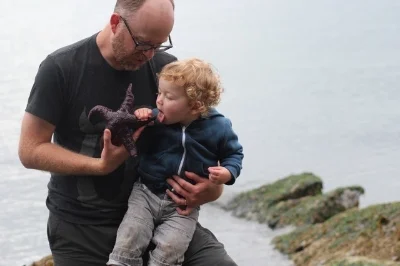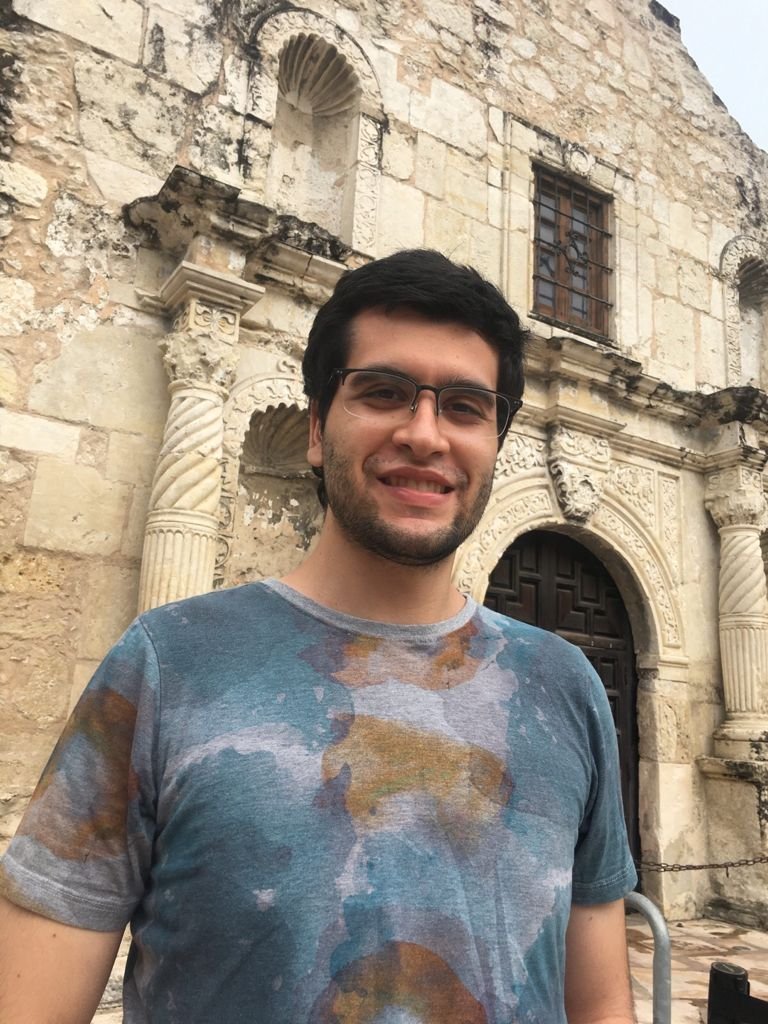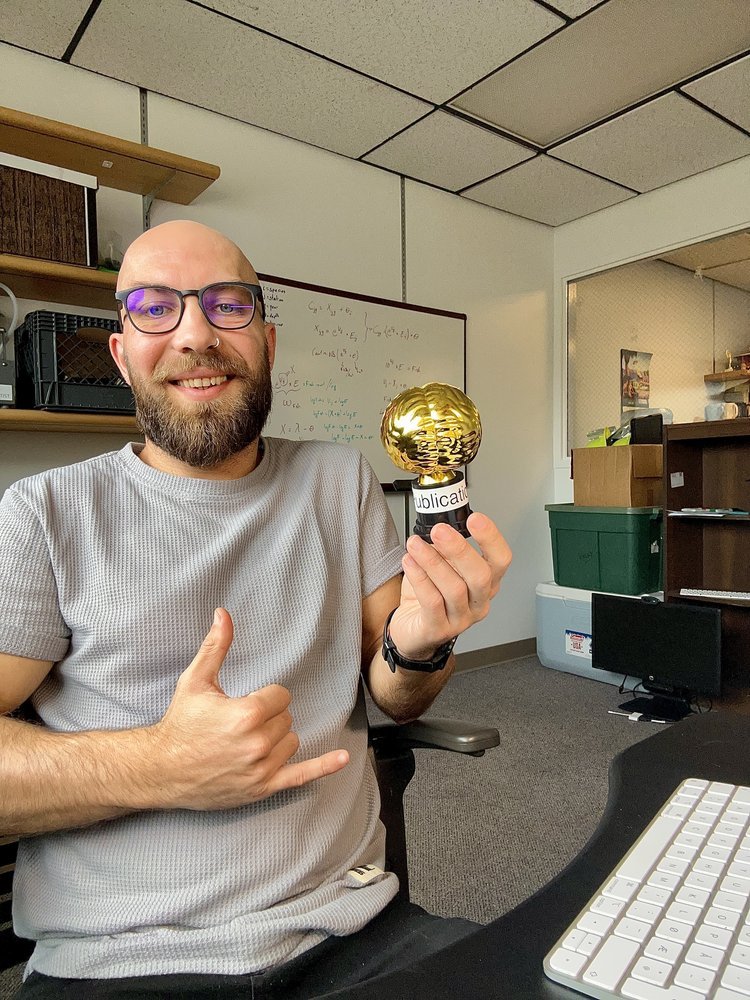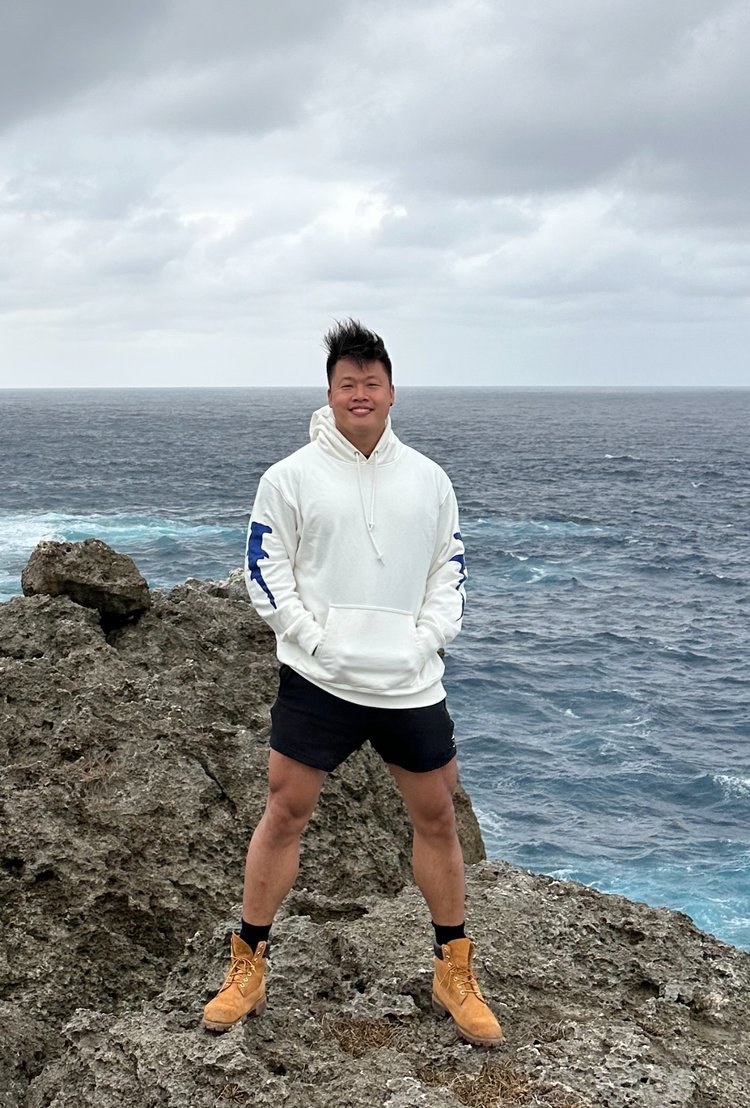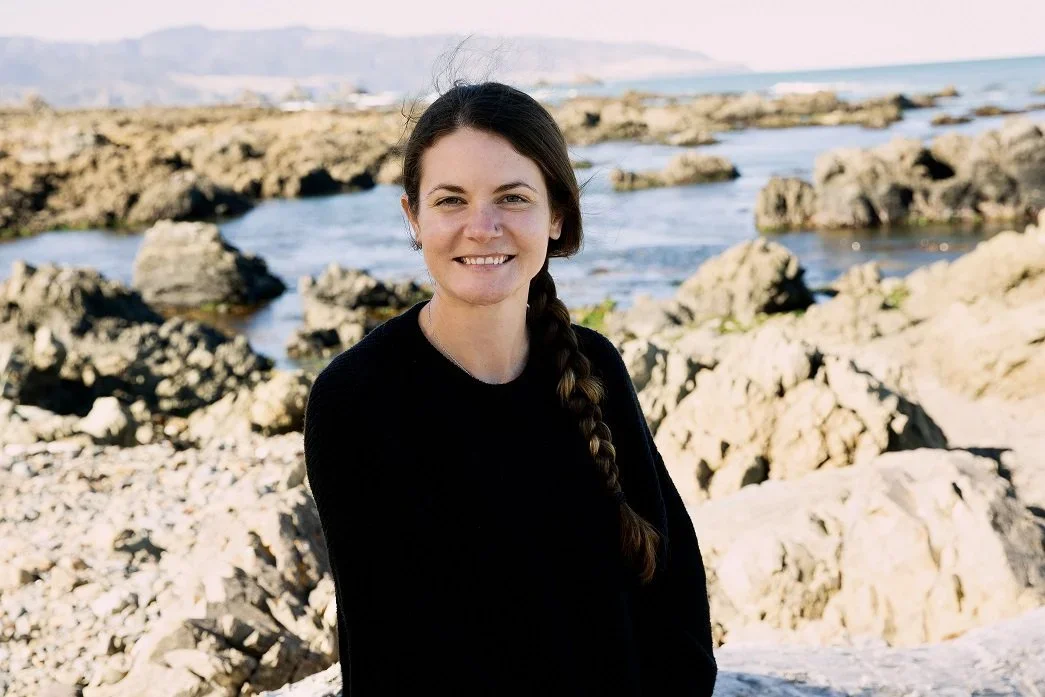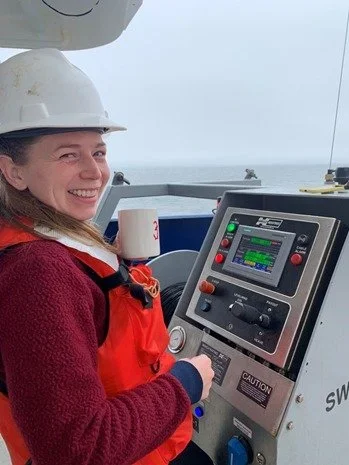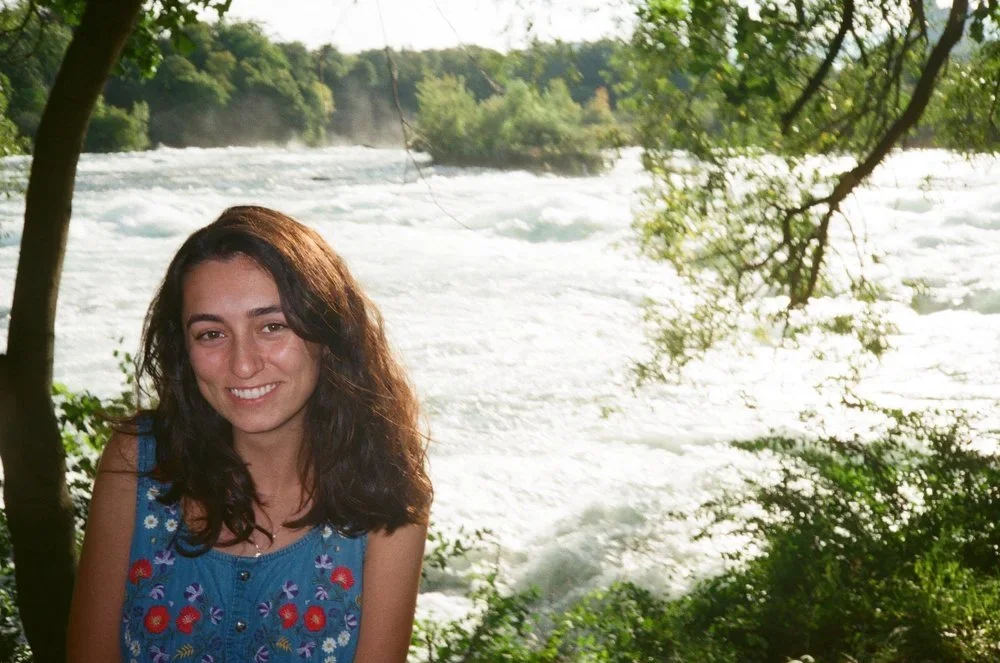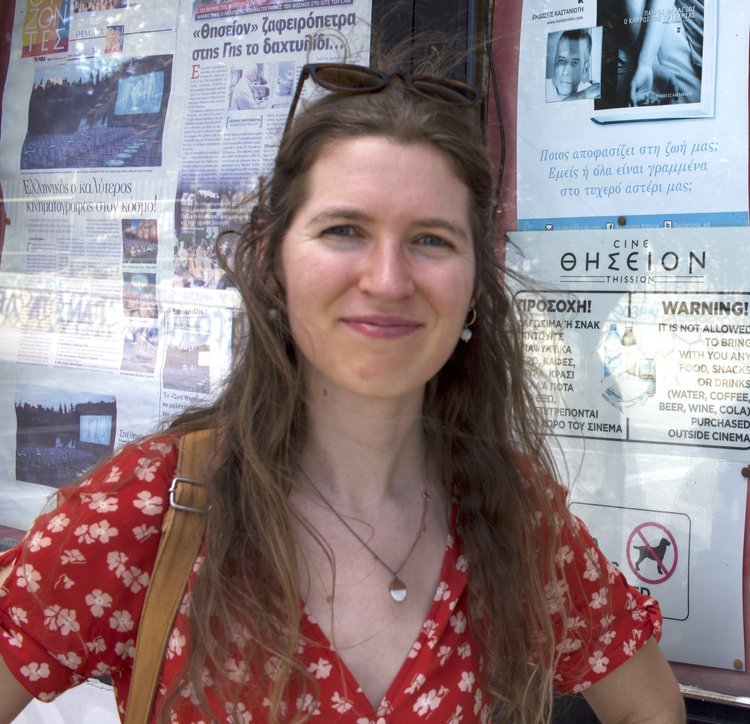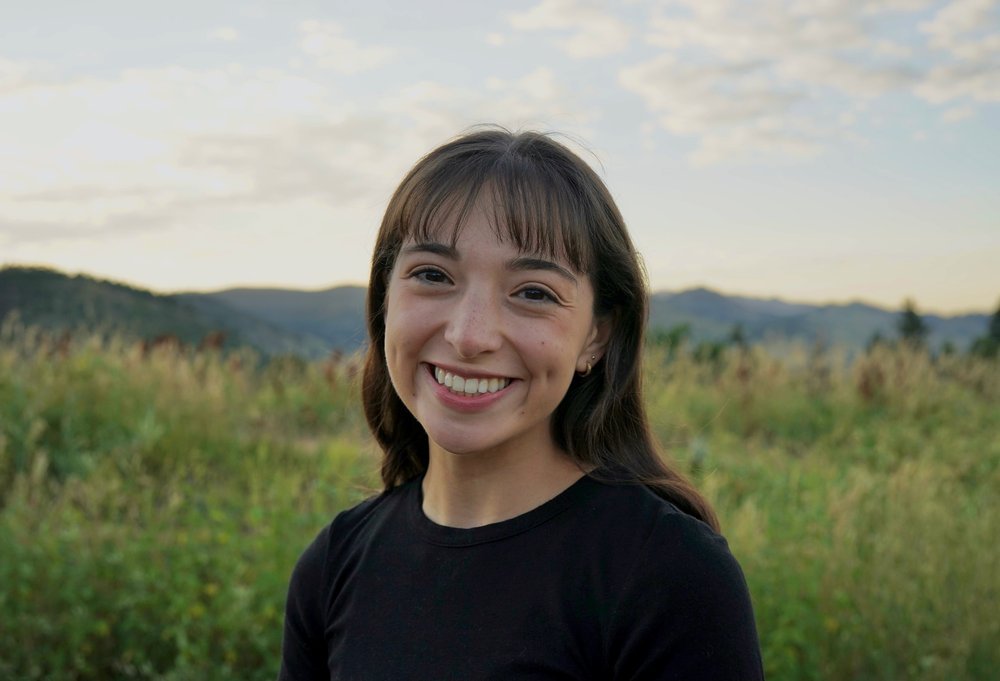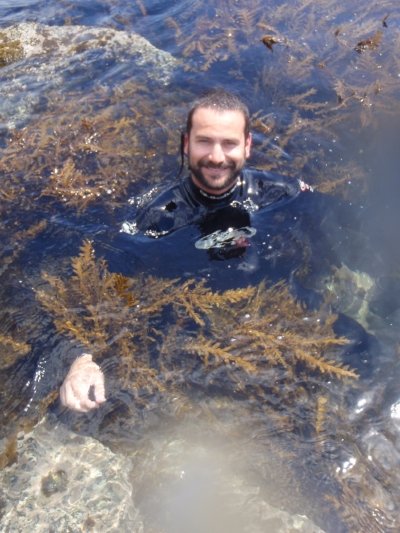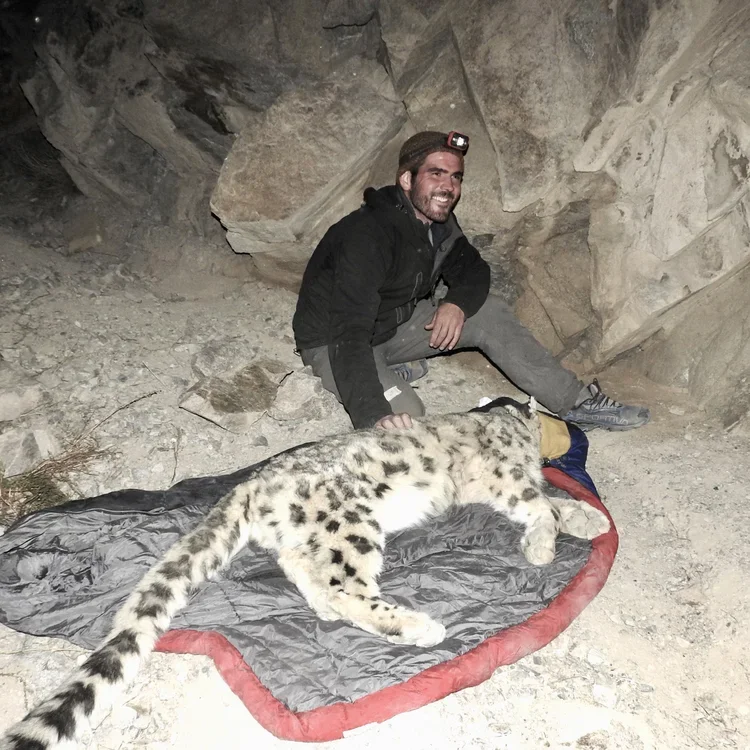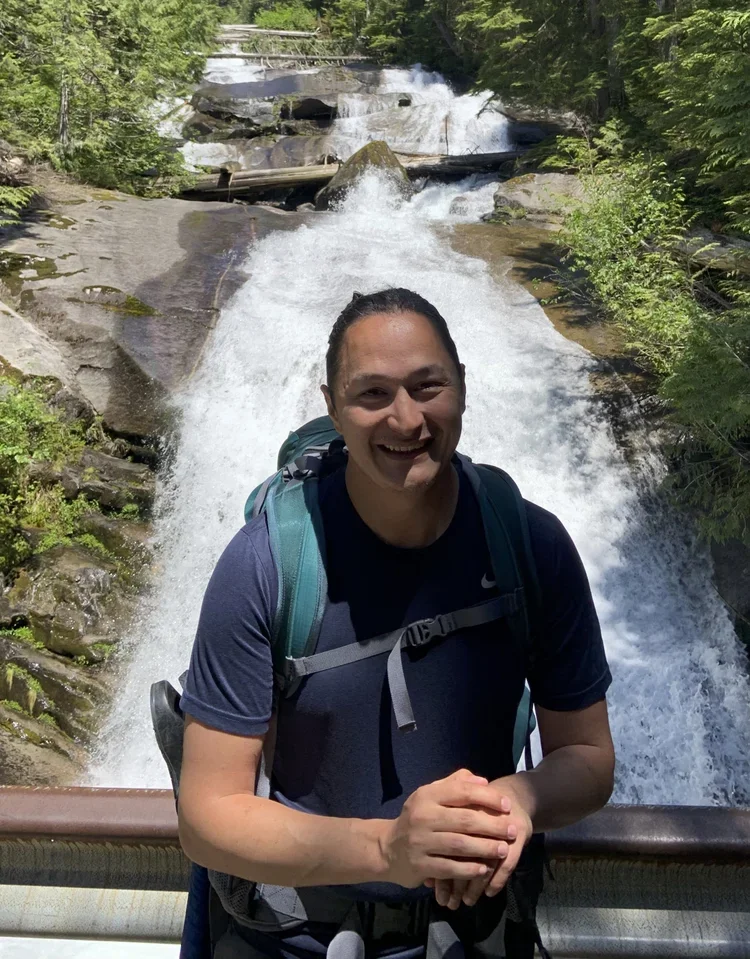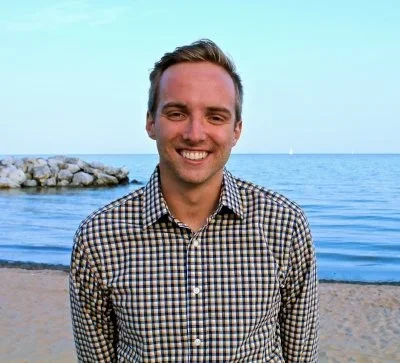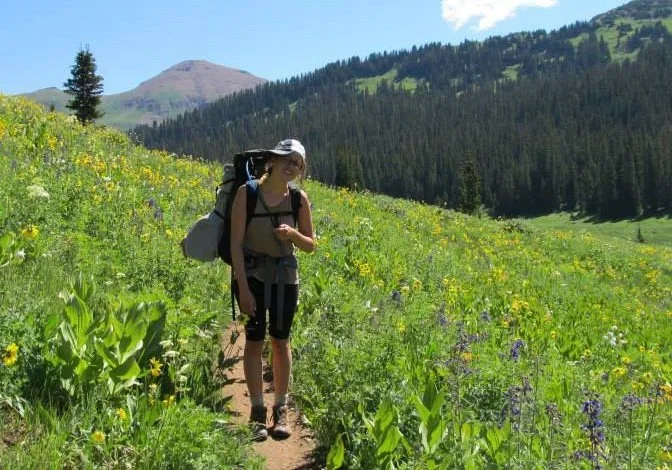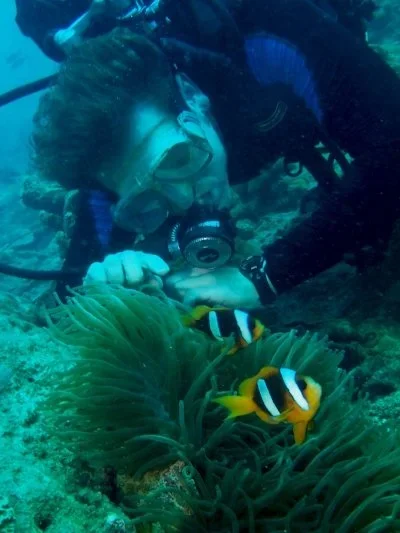People
Ryan Kelly
Professor, School of Marine and Environmental Affairs
Director, The eDNA Collaborative
I have a broad set of interests, focused both on hard scientific data and policymakers’ use of those data. I study the interplay between ecology and genetics in marine species, joining primary research with real-world implementation in law and policy. I am generally attracted to projects that have significant elements of both scientific and policy relevance as we work towards more sustainable use of marine resources. Between the Tides books here and here. Google Scholar page here.
Eily Allan
Chief Scientist, The eDNA Collaborative
Eily’s research is focused on using environmental DNA (eDNA) to monitor aquatic species. She is interested in all things eDNA - from nuts and bolts type questions to applied ecological questions. In the past, she has explored whether different types of animals (e.g., fish vs. jellyfish) shed different amounts of eDNA, how long eDNA persists in water, and how far eDNA can be transported. She is also interested in emerging technologies like using autonomous underwater vehicles (AUVs) for sampling water and using CRISPR-based methods for rapid, on-site eDNA detection. More about Eily here.
Kate Bertko
Project Manager, MMARINeDNA Grant
Kate works with the Kelly Lab as a project manager on the the MMARINeDNA (Marine Mammal Remote detection via Innovative environmental DNA sampling) grant which is investigating the transportation, persistence and distribution of marine mammal DNA at different spatial and temporal scales along the US West Coast. Prior to joining the Kelly Lab, Kate competed and coached rowing at the collegiate and Olympic level. She holds a A.B. in Ecology and Evolutionary Biology from Princeton University. P
Pedro Brandão
Extraordinary Postdoc
Pedro is a Molecular Ecologist and Naturalist dedicated to applying cutting-edge tools, molecular methods, and technologies to understand and preserve the biodiversity of our planet's ecosystems. His research focuses on developing environmental DNA (eDNA) for biodiversity monitoring and utilizing various genetic tools to assess the impacts of human activities on ecosystems. Pedro earned his PhD in Ecology and Evolutionary Biology from Rice University in 2024, following his BS in Biological Sciences from UFMG in Belo Horizonte, Brazil. When not immersed in lab work or complaining about R, Pedro enjoys writing, birding, playing D&D, and exploring games like Wingspan.
Sam Engster
Extraordinary Laboratory Technician
Sam is a molecular genetics technician at the Northwest Fisheries Science Center with NOAA and UW/CICOES. Having earned a B.S. in Natural Resources from Central Michigan University and (soon) an M.S. in Biology from the University of West Florida, her past research has included projects that focused on conservation genetics of Michigan turtles, hormone levels in the whiskers of pinnipeds, and most recently, using eDNA metabarcoding to characterize reef fish communities in the Gulf of Mexico. She is excited to continue applying eDNA methods for marine conservation.
Gledis Guri
Extraordinary Postdoc
Gledis is an enthusiastic researcher with a great interest in environmental DNA (eDNA) and its quantification using Bayesian models. His passion for mathematics began in his teenage years when, suddenly, "it clicked, and I understood how math works." Today, he tries to use math to solve ecological problems. He is very social and outgoing, always curious about the world around him. Cephalopods are his favorite animals, and he hosts a podcast (link) just for the sake of learning more about these creatures. He is always up for any water sport, including surfing, diving, and snowboarding (after all, snow is water too).
Aden Ip
Extraordinary Research Scientist
Aden Ip is an environmental scientist specializing in the use of environmental genomics to monitor biodiversity and track ecological health. His research encompasses various aspects of eDNA, including its applications in marine, freshwater, and terrestrial ecosystems, monitoring animal health statuses, the development of innovative sampling techniques, and the advancement of analytical methods to improve eDNA detection and interpretation. Aden is particularly interested in the practical applications of eDNA for conservation and management, aiming to make eDNA analysis more accessible, efficient, and reliable for a wide range of stakeholders. He focuses on developing portable detection technologies and portable sequencing methods, striving to bring cutting-edge eDNA tools into the field to facilitate rapid and accurate biodiversity assessments. When not in the lab, Aden enjoys connecting with the natural world through scuba diving, hiking, and photography. He is always eager to engage with fellow researchers and practitioners in the field of environmental science..
Stephanie Matthews
Extraordinary Research Scientist
Stephanie received her PhD in Biological Oceanography from Scripps Institution of Oceanography in 2023. She is interested in species distributions and the ecological processes that give rise to them, particularly of pelagic zooplankton. As a part of the Kelly Lab, she is examining the distribution and population structure of yelloweye rockfish using eDNA. She is excited to develop new molecular tools for ecosystem management, as well as for the opportunity to go diving and finally meet her study subject in their own habitat.
Olivia Scott
Extraordinary Research Scientist
Olivia joined the Kelly Lab as a research scientist on the rockfish project. Originally from the East Coast, she earned her B.S. in Biology and Environmental Science at the University of New England, where she studied grassland birds and first fell in love with research. She later honed her lab skills working as a molecular analyst for a large biotech company. Before moving to Washington, Olivia fled from corporate life to spend the summer working as a biologist on the Maine Loon Restoration Project. She is excited to help develop methods for eDNA analysis to better understand the environment and inform conservation decisions.
Megan Shaffer
Extraordinary Research Scientist
Megan is a molecular ecologist in the Kelly Lab on the the MMARINeDNA (Marine Mammal Remote detection via Innovative environmental DNA sampling) project between UW, NOAA and Scripps, which is investigating the transportation, persistence and distribution of marine mammal DNA at different spatial and temporal scales along the US West Coast. Megan received her PhD in Marine Biology from Victoria University of Wellington (New Zealand) in 2019. She has worked as a research scientist on several projects examining population genetics of invertebrates on coral reefs and in temperate ecosystems. Before joining the Kelly Lab, Megan was a laboratory manager for a commercial eDNA lab in New Zealand, and is now interested in continuing to develop and apply eDNA methods for marine ecosystem monitoring and management.
Lab Alumni
Helen Casendino
Undergraduate / Alum
As an undergraduate in the School of Aquatic and Fishery Sciences, Helen worked with others in the Kelly Lab on developing a conceptual understanding of how stochasticity arises among replicate samples of eDNA. She went on to characterize the insect communities of multiple creeks in Bellingham, Washington using eDNA samples collected by members of the Kelly Lab. As a recent graduate, she hopes to focus on quantitative approaches to understanding ecosystem disturbance in the professional sphere.
Kelly Cribari
Master's Student / Alum
ELIZABETH BRASSEALE
Postdoc / Alum
Elizabeth received her PhD in Physical Oceanography from the University of Washington School of Oceanography in 2020. She specializes in modeling coastal transport at the shelf, estuarine, and nearshore scales with interdisciplinary applications such as water quality forecasting and larval transport. As a part of the Kelly lab, she has proudly added eDNA to her repertoire of "things I have modeled transport of." When not in the lab, she can be found birding, playing board games, or talking through movies.
Lauren Cortez French
Master’s Student / Alum
As a master's student at the School of Marine and Environmental Affairs, Lauren was interested in aquatic microbial ecology and its intersection with human health. She received her B.S. in Biology and Environmental Science & Policy from William & Mary where she used eDNA metabarcoding to study aquatic fungal community composition. Lauren’s SMEA thesis focused on spatial and temporal trends in marine biotoxins detected from bivalve tissue samples. In the Kelly Lab, she assisted with eDNA metabarcoding of algal communities in Washingon’s marine waters.
Erin D’Agnese
Postdoc / Alum
Erin was a postdoctoral researcher in the Kelly Lab working on applied research using eDNA to monitor aquatic ecosystems in Washington during fish passage restoration projects. She uses a One Health research approach to improve ecosystem and animal health while improving human stewardship/reducing impact. Erin received her PhD in Integrative Pathobiology from the UC Davis School of Veterinary Medicine in collaboration with the University of Tasmania on a project studying microbial connectivity between Australian fur seals and salmon aquaculture. Her background is in marine mammal wildlife health, animal microbiomes, and disease ecology. She likes using molecular and epidemiological approaches to answering questions related to wildlife health and ecological conservation. She is also interested in utilizing emerging non-invasive technologies, like CRISPR, to get real-time, on-site detection of eDNA for ecological and health monitoring. When not working, Erin loves getting into adventures outside with her wild doggo, Delilah (especially in the snow and the ocean), baking, and weightlifting.
Joe Duprey
Master’s Student / Alum
As a master's student at the School of Marine and Environmental Affairs, Joe used eDNA data to investigate patterns of biological invasion in the Salish Sea. Joe also collaborated with other researchers in the Kelly lab to quantify signal vs. noise in eDNA surveys. He is currently working with a research team at the UW Institute for Health Metrics and Evaluation doing public health and climate change forecasting.
Maya Garber Yonts
Master’s Student / Alum
Maya worked with the Kelly Lab as a master’s student at the School of Marine and Environmental Affairs who worked on projects ranging from using eDNA to monitor Harmful Algal Blooms in the Puget Sound to tracking broad taxa shifts in response to culvert replacements here in the PNW. She is interested in eDNA metabarcoding and qPCR techniques as an environmental monitoring tool aimed at informing management. Maya was excited to be involved with both the Kelly Lab and the eDNA Collaborative as they work to share, educate and drive this field of research further.
Ramón Gallego
Postdoc / Alum
Ramón was a postdoc at the Kelly Lab between 2017 and 2019, and collaborated at NOAA fisheries. During his tenure at the Kelly lab, Ramón learned all the nuts and bolts around environmental DNA, and worked towards making metabarcoding data useful, particularly to make ecological inferences. Since February 2022, Ramón joined the Universidad Autónoma de Madrid, in Spain, as a Maria Zambrano fellow, from where he will continue collaborating with the Kelly lab.
Zack Gold
Postdoc / Alum
Dr. Zachary Gold was a joint postdoc between the Kelly lab and NOAA NWFSC developing quantitative eDNA metabarcoding approaches to better understand both ecosystem responses to climate change and characterize the riverine foraging ecology of Cook Inlet Beluga whales. During his postdoc, Zack helped develop and empirically test our growing framework toward quantitative metabarcoding, highlighting the importance of DNA concentration and amplification efficiencies in estimating abundances and parsing signals from noise. He then applied these approaches to understanding the riverine foraging ecology of Cook Inlet beluga whales using eDNA approaches to identify putative prey targets and critical seasonal habitats for the endangered species. In addition, Zack used quantitative metabarcoding approaches to characterize fish assemblage responses to marine heatwave events using a novel application of metabarcoding to preserved CalCOFI ethanol samples, unlocking archived museum samples for understanding human impacts on marine ecosystems. Zack is now continuing this work in a joint position between Scripps Institution of Oceanography, Southern California Coastal Watershed Research Project, and NOAA Southwest Fisheries Science Center leading the molecular research arm of the CalCOFI program to understand ocean acidification/hypoxia impacts on zooplankton communities as well as developing and implementing eDNA approaches to survey key coastal CA species.
Emily Jacobs-Palmer
Postdoc / Alum
Emily Jacobs-Palmer studied the genetic basis of sperm competitive traits as a graduate student, and then left academia briefly to teach high school biology. Emily currently employs genetic tools to look at the ecology of harmful-algal-bloom (HAB) forming species in Puget Sound, among other things.
Shannon Kachel
Extraordinary Postdoc
Shannon is a conservation biologist and quantitative ecologist motivated to use and apply math to shed light on the ecology and conservation of understudied and threatened species – and to help others do the same. Informed by a background working to protect and understand snow leopards and other rare and elusive carnivores in the high mountains of Central Asia, Shannon is eager to push the edges of what we can learn from eDNA and other non-invasive tools. Shannon is a passionate field naturalist commonly observed climbing, running, birding, herping, botanizing, and foraging his way through the forests, coasts, and mountains of the Pacific Northwes
Alex Jensen
Postdoc / Alum
Alex was a postdoctoral scholar in the Kelly Lab from 2021-2022, where he collaborated with researchers from the Southwest and Northwest Fisheries Science Centers to model the marine distribution of Chinook salmon stocks using both genetic and physical tag-based historical data. He also contributed to the statistical analysis of eDNA data during his time at UW.
Alex left the lab to join the Bureau of Reclamation's Bay-Delta Office (based in Sacramento, California) as a Fish Biologist, where he currently works to model the ecology of fishes in the Central Valley and Bay-Delta regions and assist in ongoing decision analysis projects.
Abby Keller
Master’s Student / Alum
As a master's student in the School of Marine and Environmental Affairs, Abby worked with the Kelly lab and Washington Sea Grant's Crab Team to refine an eDNA monitoring tool for invasive European Green Crab. She also developed a model that integrates eDNA detections and traditional green crab trapping data to quantify the added value of eDNA data. Abby is now a PhD student studying environmental decision science in the Environmental Science, Policy, and Management Department at UC Berkeley.
Jimmy Kralj
Master's Student Extraordinaire / Alum
OWEN LIU
Research Scientist / Alum
Owen is a spatial and fisheries ecologist and environmental data scientist interested in how relationships within and among species inform how we should manage marine ecosystems and resources under a changing climate. He received his Ph.D. from the University of California, Santa Barbara in 2019, and has been in Seattle since working as a researcher with NOAA's Northwest Fisheries Science Center. Recently, he has worked on everything from whale entanglement to climate model downscaling to species distribution modeling. In the Kelly lab, Owenis hoping to help build eDNA-based spatial models to estimate species distributions in the ocean. You can find more about Owen here.
Natalie Lowell
Master's Student Extraordinaire / Alum
Jimmy O'Donnell
Postdoc Par Excellence / Alum
http://jimmyodonnell.github.io/
Ana Ramon Laca
Lab Tech / Alum
Ana is a molecular geneticist (aka Lab technician) at the Northwest Fisheries Science Center, NOAA through the CICOES program (School of marine and environmental affairs, University of Washington). She worked on many eDNA detection, quantification and metabarcoding projects, developed species-specifc assays, GTseq panels, and amplification-free methods to generate fish mitogenomes de novo using CRISPR-Cas9. She is currently working at the National Museum of Natural History in Madrid (Spain) where she is working with eDNA, whole-genome sequencing, and many other fun projects using Oxford Nanopore platforms.
